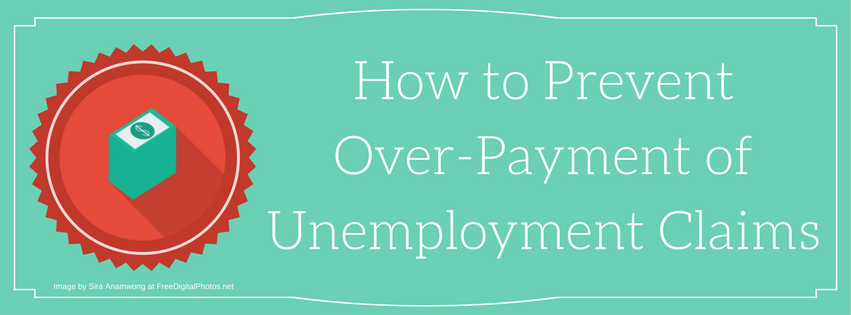Did you know incorrect payments of unemployment insurance (UI) benefits can be costly for your business? Over-payment of benefits can be charged to your account and alter your UI reserve, requiring a larger tax rate in a subsequent year. But rest assured, you can avoid this by looking out for the UI notifications from your state agency and replying to them quickly.
What are UI benefits?
Unemployment insurance is a program created to provide eligible workers, who are unemployed due to no fault of their own, with temporary financial assistance. Some examples for why an employee has been let go that would quality are: reduction of hours/ staff or if an employee is not the right fit for the position. The individual must have received enough wages during their base period, be physically able to work, and be actively looking for work in order to apply for benefits.
Incorrect over-payments of UI benefits happen when an employer or former employee provides the wrong payroll information or neglects to provide the information on time. When this happens, former employees might collect benefits that they should not receive.
How to prevent over-payments:
- When a worker leaves your company, give correct and complete information regarding the separation. This can help prevent over-payments and can save you from going through the appeals procedure.
- Respond as rapidly as possible to requests for proof of the employee’s weekly pay amount.
- Report new hires to your state agency within the required number of days (usually 10-20 days) to prevent collecting benefits while working.
If an employee does receive more UI benefits than he or she should, the money must be repaid, and penalties and fines may be incurred. Unfortunately, if the employee does not repay, he or she may lose future eligibility to receive benefits and in some cases, go to prison. The unpaid funds may also be withheld from their state and federal income tax refunds, or garnished from future paychecks.
Employers can face serious penalties for not complying with UI laws. Failing to make proper tax payments will result in interest and fines in addition to the tax due, thus, it’s imperative to pay taxes when due.
If you need more information on this topic, check your state agencies website, or contact us at (310) 534-5577 and one of our staff members would be happy to speak with you.
